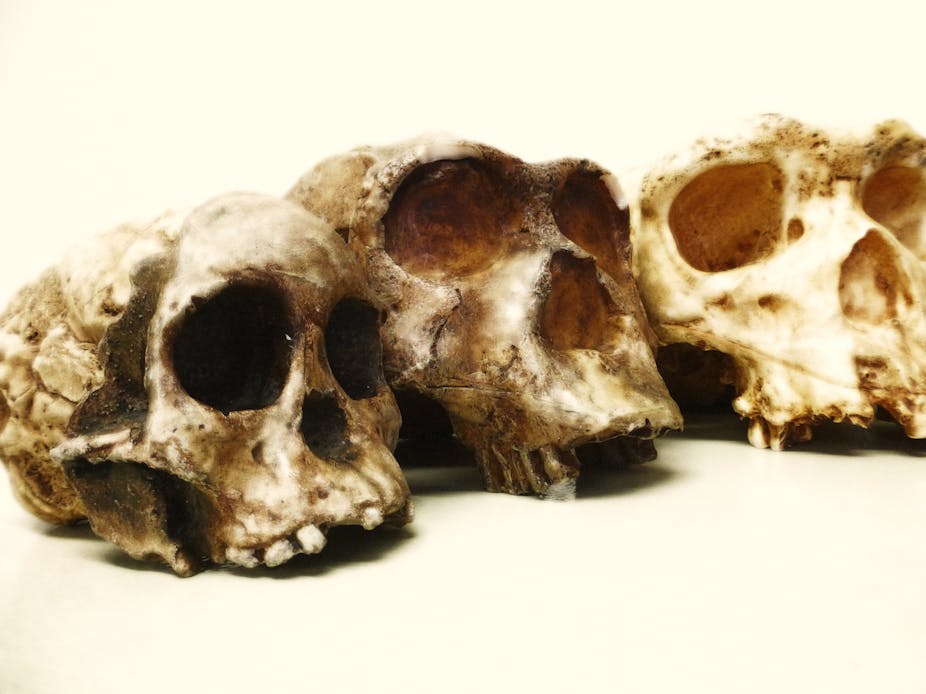The theory that humans emerged in Africa is often questioned. That’s good for science

Then, the human branch of the evolutionary tree (hominins) split only seven or eight million years ago from our closest ape relatives, chimpanzees and gorillas. The oldest recorded hominin, whose skull was found in Chad and has been nicknamed Toumaï, is just a little younger than this.
Africa remained the unique centre of hominin evolution for approximately the next six million years. 1.8 million years ago, Homo erectus first left the continent – and today we’re everywhere.
Several recent pieces of research have questioned this established consensus. They have, either directly or in media articles about the work, suggested that humankind’s evolutionary tree should be re-rooted in Europe. This is the nature of science: a paradigm that cannot be questioned on a regular basis becomes a dogma.
So let’s examine these so-called “paradigm shifters” and see whether Africa should be stripped of the title of “cradle of humankind”.
...
Read more here/Leia mais aqui: The Conversation


